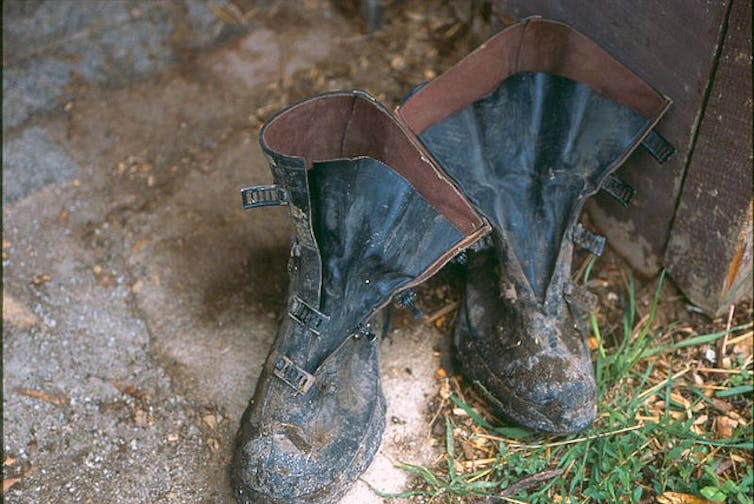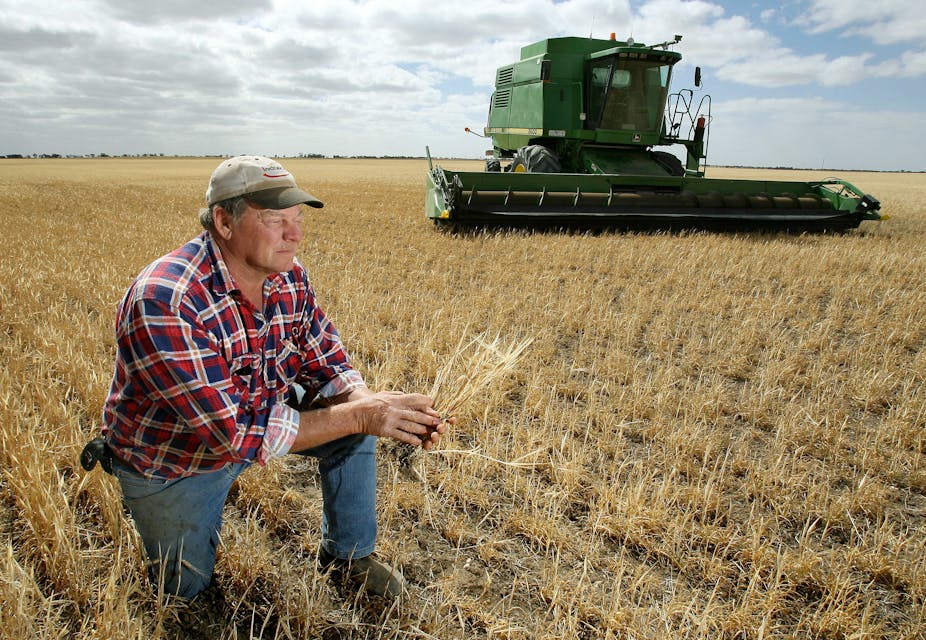They toiled and they fought through the shame of it -
Through wilderness, flood, and drought…
…The miseries suffered, unvoiced, unknown -
And that’s how the land was won.
Henry Lawson’s characterisations of colonial Australia have found an enduring place in our social history. His depiction of pioneering men captures what has become a great Australian stereotype: the tough and self-sufficient rural man, isolated, suffering in silence against great personal and environmental adversity.
Moving to the present, Lawson’s Australian rural man – and, particularly, the farmer - has become a subject of concern within health research, policy, and practice. Farmers have a higher rate of suicide than people with other occupations, and reducing suicide rates among farmers and farm workers is an ongoing challenge.
There is considerable speculation about factors influencing farmer suicides. Typically, we hear about stressors such as prolonged drought and natural disasters, financial hardship, changing demand for agricultural commodities and a shift away from rural industries, and decreasing political representation. Long working hours, geographic remoteness, and relationship strain due to financial and other pressures, are often raised.
One of the most commonly proposed contributors to farmer suicide is a lack of access to, or use of, mental health services, along with cultural factors such as stigma and “traditional masculinity.” While the latter concept is not well defined, it generally refers to attributes such as self-reliance, individualism, and stoicism - characteristics we stereotypically associate with farmers.
The theory runs that, over and above the other structural and cultural barriers that prevent farmers seeking help, their propensity to seek help if they are feeling suicidal will be impeded by their notions of masculinity.
Although there are many possible and probable risk factors for farmer suicide, comparatively few are backed by robust evidence. Consequently, there is no clear picture of which factors have the strongest influence on farmer suicide. This makes it very difficult to understand what an effective intervention may look like.
There is a great deal of information about protective factors in the general population, but to date, very little effort has been made to understand what factors are most likely to be protective for farmers. This is perhaps the most important question of all.
It’s all very well to talk about mental health literacy or social support, but the best protective factors for farmers may be practical things like the ability to hire staff to harvest a crop, or being able to get a decent price for livestock and produce. We need to know this.

Adding to this complex situation, it seems many common assumptions about farmers and suicide need to be re-examined. Based on a preliminary investigation into help-seeking behaviour among adult male farmers who died by suicide in Queensland, it appears a sizeable proportion of those men – around 40% – had accessed some type of professional mental health help prior to death.
These findings cast doubt on the assumption that farmers generally avoid seeking formal help. This is true for some, but not as many as the received view suggests.
This prompts us to ask whether the help those farmers received was appropriate for their specific needs. And is it possible that the type of professional help accessed by those farmers was a poor match? A gentleman in his 60s who has always lived on the land may not feel comfortable talking to a 23-year-old female mental health nurse who has just moved to the area.
Untreated mental illness is unlikely to adequately explain farmer suicides; many Queensland farmers who died by suicide had no recorded signs of a psychiatric condition. So what was going on in their lives, before their suicide?
A substantial amount of international evidence suggests that life events and occupational stress play an unusually strong role in farmer suicide. But Australian research into these issues remains scarce. We don’t know why one farmer affected by drought takes his own life, while his neighbour – who is equally affected – does not.
These knowledge gaps impact on our ability to design and implement effective suicide prevention programs in farming communities. Until we can improve the evidence base around farmer suicide, we will continue to have to develop suicide prevention policies and programs in an environment of guesswork and assumption, rather than basing them on high quality evidence.
Farmers put food on our tables. This year - the Australian Year of the Farmer – I hope we researchers can start putting some facts about farmer suicide on the table.

